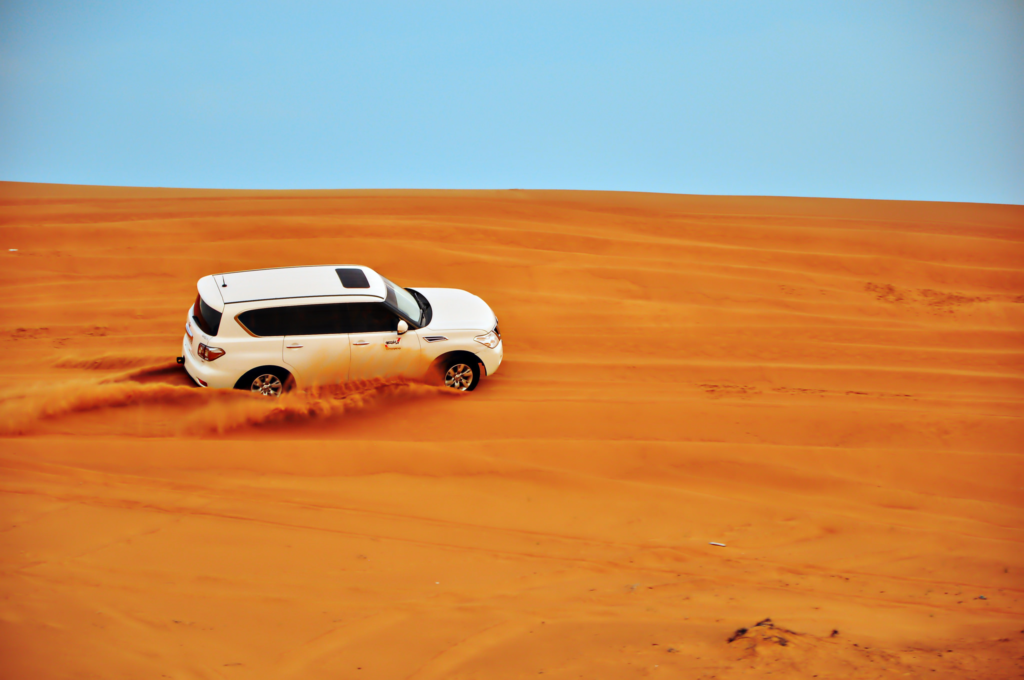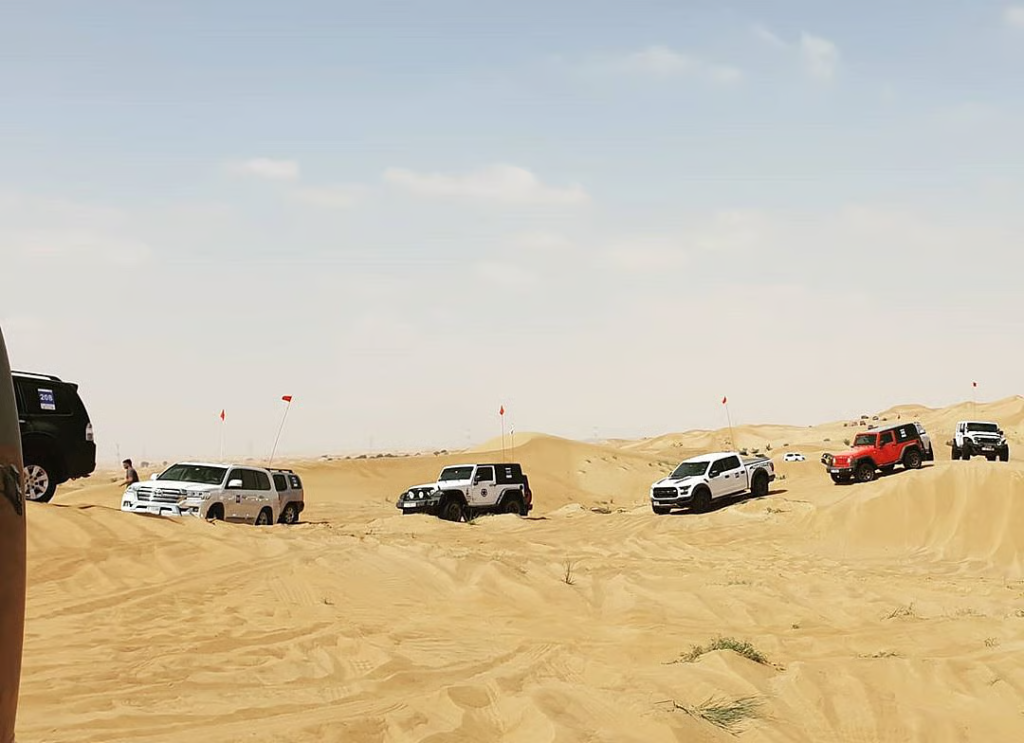Summer in the United Arab Emirates is known for its scorching heat, rising temperatures, and dry climate. But what happens to UAE desert safaris in the summer? Many tourists and adventure seekers wonder if desert safaris still operate, whether they are safe, and how the experience changes during the hottest season of the year.
The answer is not as simple as “they close” or “they continue.” In reality, the UAE tourism industry has adapted smartly to keep the desert safari experience alive during summer months. Let’s explore the key changes, challenges, and innovations that occur in UAE desert safaris between June and September.
Timings shift to early morning or late evening
One of the biggest changes that happens to UAE desert safaris in the summer is a complete shift in operating hours. With midday temperatures soaring over 45°C, most safari operators avoid running trips during peak daylight hours.
Instead, safaris begin either early in the morning between 5:00 AM and 7:00 AM or in the evening, after 4:00 PM. Evening safaris often include sunset views, dinner buffets, and live entertainment under the stars. Morning safaris focus more on dune bashing and wildlife viewing.
This timing shift helps protect both guests and staff from intense heat exposure and ensures a more comfortable experience.

Temperature-responsive safety measures
What happens to UAE desert safaris in the summer also includes several new safety upgrades. Operators equip vehicles with stronger air conditioning, offer unlimited chilled water, and often install shaded rest points in desert camps.
Some tour packages now include portable misting fans, cool towels, and first aid professionals on-site. Tour guides are also trained in heatstroke awareness and emergency handling especially important for international guests unfamiliar with desert climates.
Reduced dune bashing hours
Another adjustment during summer is a reduction in dune bashing duration. High-speed driving on sand dunes remains thrilling, but summer temperatures can overheat both vehicles and humans.
Therefore, tour guides often shorten dune bashing to 10–15 minutes instead of the usual 30 minutes, focusing on quality rather than quantity. The saved time is often used for indoor or shaded activities at the desert camps.
Luxurious indoor safari options emerge
To cope with summer heat, a new trend has emerged in recent years luxury indoor desert safari experiences. These include exclusive air-conditioned camps, private lounges, indoor falconry shows, and climate-controlled dining tents.
What happens to UAE desert safaris in the summer is not just a matter of surviving the heat, but also evolving the experience to fit modern luxury standards. Guests can enjoy camel rides and cultural performances without leaving their comfort zone.
Desert wildlife viewing is more difficult
Summer has a noticeable effect on the desert’s wildlife. Most animals, like Arabian oryx or desert foxes, avoid open areas during daytime to escape the heat.
This makes wildlife spotting more challenging compared to winter months. However, early morning safaris still offer a chance to see desert creatures before the sun fully rises. Operators also use tracking systems and local guides to increase the chances of spotting animals.
Lower tourist traffic leads to discounts
What happens to UAE desert safaris in the summer also involves economics. With fewer international visitors between June and August, many safari companies lower their prices or offer added benefits like free upgrades, complimentary henna, or photo sessions.
For budget travelers or those willing to handle the heat, this can be the perfect time to enjoy a desert safari experience at half the usual cost. It’s one of the few times when luxury desert activities become more accessible.
Some activities get suspended
Not every activity runs during the summer. Falcon shows, traditional cooking classes, or sandboarding sessions may be suspended or limited due to weather. Fire shows and BBQ sessions are also carefully controlled to prevent any fire hazards in the dry summer air.
Operators usually update their websites to inform guests in advance about activity availability. Always check the updated itinerary before booking your tour during summer.
Why tourists still choose desert safaris in summer
Despite all the heat and adjustments, desert safaris don’t lose their charm. For many tourists, the raw beauty of the Arabian desert, combined with fewer crowds, cooler evening breezes, and unique night-time experiences, make summer safaris an unforgettable adventure.
Photography lovers especially appreciate summer sunsets, which create vivid golden skies unlike any other time of year.

Smart tips for enjoying desert safaris in summer
If you’re planning to book a desert safari between June and August, here are some practical tips to stay safe and get the most out of your journey:
- Choose early morning or late evening tours
- Wear light, breathable clothing and a sun hat
- Stay hydrated drink water regularly, not just when you feel thirsty
- Use strong SPF sunscreen even in the evening
- Follow your guide’s instructions carefully
- Book with reputable companies that clearly list summer adjustments
Final thoughts
So, what happens to UAE desert safaris in the summer? They adapt. While the extreme heat may sound like a deal-breaker, the UAE has transformed this seasonal challenge into a tailored experience with improved safety, comfort, and creativity.
If you’re willing to trade the cold breeze for a blazing sunset and a less crowded desert camp, a summer safari in the UAE might be your next big adventure. Just plan smartly, book wisely, and prepare for a desert experience like no other.
Do follow Gulf Magazine on Instagram
Also Read – Zayed National Museum to Reveal 7 Inspiring Stories of UAE



